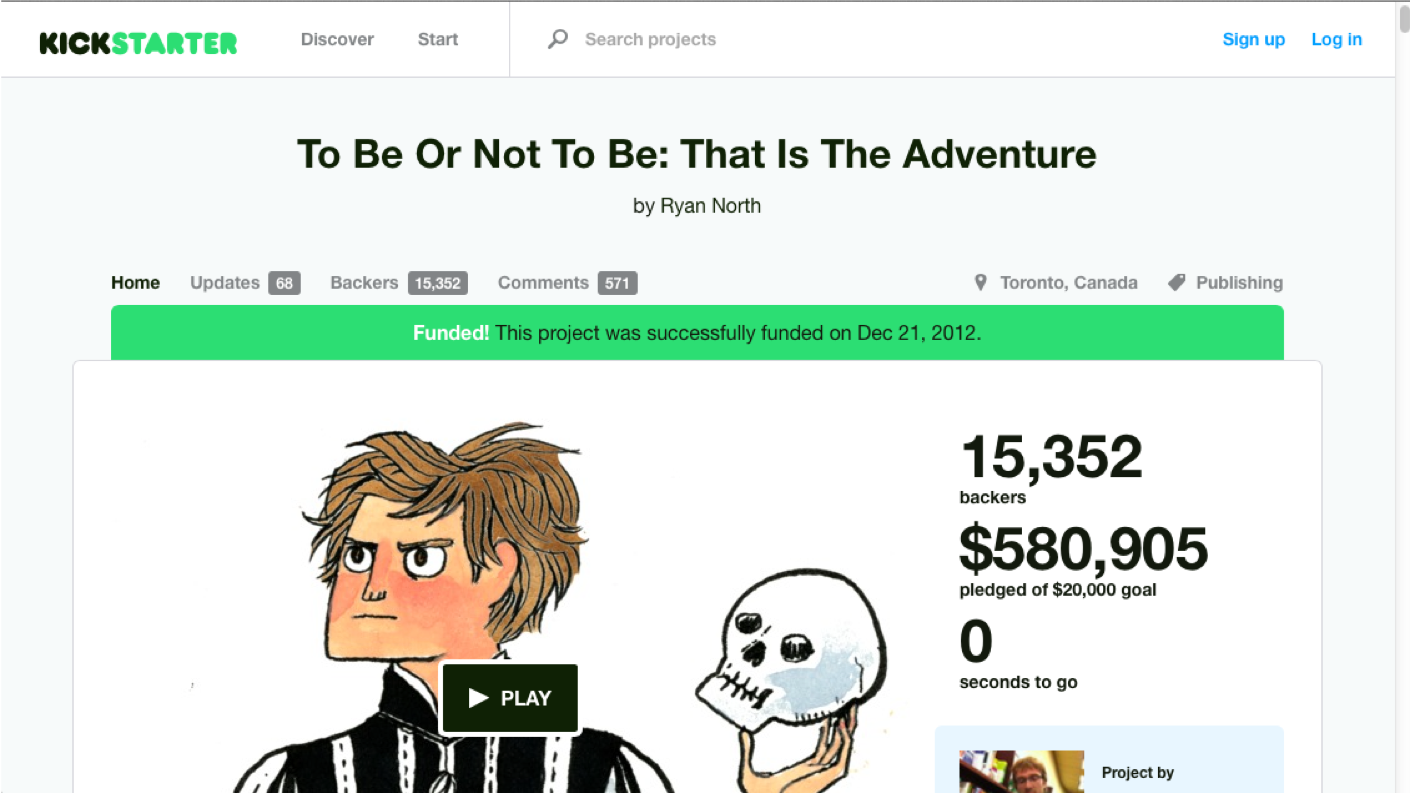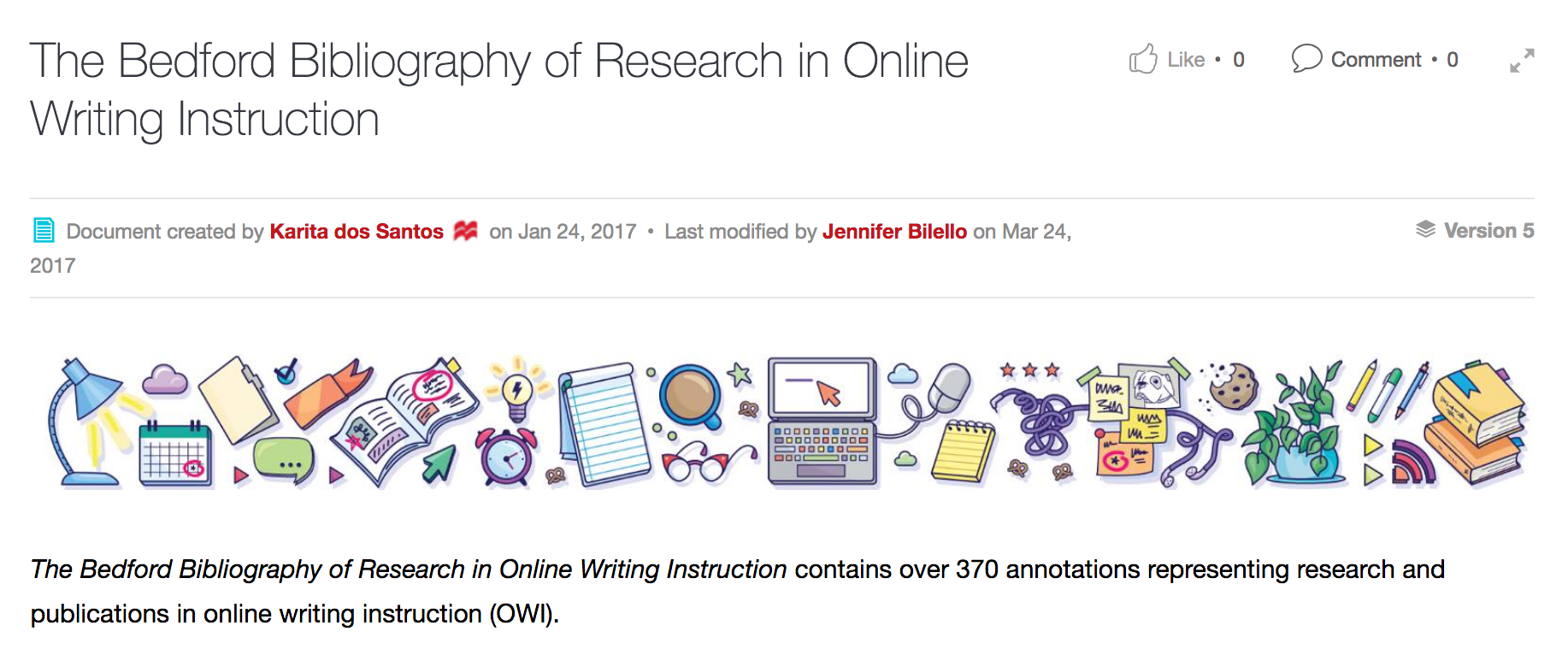Research
My Research Agenda
As a scholar, I've never seen myself as devoted primarily to teaching at the expense of research, or vice versa. On the contrary, I consider myself to be a teacher researcher, an approach that keeps both sides of my academic identity in conversation with each other. I like the idea of my research first having a direct impact on my own classroom instruction and next being shared with my peers and becoming useful in their work. While teacher research is most often thought of as beginning in the classroom, I take a wider view, finding it necessary and useful to do at a departmental level and above. In fact, my dissertation research (described below) approached teacher research on a national level, providing a broad picture of teacher preparation programs across the country in order to give individual programs and WPAs a practical context in which to perform their own teacher research.
I was trained in Texas Tech University's Technical Communication and Rhetoric doctoral program, well known for its robust instruction in research methods (the doctoral program requires 12 hours in research methods-intensive courses). Therefore, instead of seeking research questions that accommodate a single method that I'm comfortable with, I am qualified to use a variety of empirical and textual methods and apply them appropriately to whatever research questions arise, as the examples below demonstrate. While my recent work has centered on writing program administration, teacher preparation, online writing instruction, and accessibility, I remain open to new directions suggested by my work in the classroom and my department.
Past Projects
Choose Your Own Adventure:
Agency as Constitutive Rhetorical Vision in Web 2.0
On November 21, 2012, web comic artist Ryan North began a Kickstarter project campaign called “To Be Or Not To Be: That Is The Adventure” to raise money to cover the publishing costs of an 80,000-word, Choose Your Own Adventure-style novel version of Shakespeare’s Hamlet that he had written. The project met its initial funding goal of $20,000 in less than four hours, and by the December 21 deadline 30 days later, the campaign had exploded, receiving $580,905 in pledges from 15,352 backers, or 2904% of its funding goal, becoming the most funded publishing project in Kickstarter history.
The obvious questions, then, were how did this happen and why did it happen to this project instead of another? I attempted to answer these questions by performing a fantasy theme analysis informed by Maurice Charland’s idea of constitutive rhetoric. The resulting paper was delivered at the 2014 Rhetoric Society of America Conference in San Antonio, TX.

Grover, S. D. (2014, May). Choose your own adventure: Agency as constitutive rhetorical vision in web 2.0. Paper presented at the Rhetoric Society of America Conference, San Antonio, TX.
Immersion, Reflection, Failure:
Teaching Graduate Students to Teach Writing Online
This article grew out of a panel I participated in at the CCCC Annual Convention in 2016. When Kelli, Heidi, Kevin, and I realized how closely our individual papers intersected, we decided to explore the connections in greater detail, resulting in this article, published in Technical Communication Quarterly in 2017. Here's the abstract:
A common challenge facing those who prepare graduate students to teach writing online is the need to help those students connect online writing instruction (OWI) theory with their classroom practice. The authors present how graduate students are prepared to teach writing online at three universities and then synthesize those approaches to highlight three principles that can guide effective OWI preparation for graduate students in any program: immersion, reflection, and failure.
I was really happy to be part of this project because it covered ground that I'd originally intended for my dissertation but that had to be cut when I reined in its scope. Click the link below to access the article through Taylor & Francis.

Grover, S. D., Cargile Cook, K., Skurat Harris, H., & DePew, K. E. (2017). Immersion, reflection, failure: Teaching graduate students to teach writing online. Technical Communication Quarterly, 26(3), 242–255. doi:10.1080/10572252.2017.1339524
The Bedford Bibliography of Research in Online Writing Instruction
The Bedford Bibliography is an attempt by the OWI community to collect and annotate all the research concerning OWI and thus facilitate the development of future research and practice. Since the previous iteration of the bibliography had been compiled nearly a decade before, updating it was a herculean task led by Heidi Harris, who asked me to contribute since my dissertation research involved a content analysis of a very similar corpus of texts. I was able to improve the comprehensiveness of the bibliography by adding several sources the committee hadn't yet discovered, and I wrote annotations for many sources.
Ethos in Cook's Illustrated
For the inaugural Applied Rhetoric Symposium held in Provo, UT, in June 2018, I presented on the rhetoric of cookbooks and recipe writing, a long extant but all-but-unstudied avenue of technical communication. My paper specifically examined the working of ethos in a popular cooking magazine, Cook's Illustrated, the flagship publication of America's Test Kitchen. I applied a framework for analyzing credibility in the context of online product reviews — drawn from Mackiewicz’s 2010 article "The co-construction of credibility in online product reviews” — to a full year's run of the magazine in order to determine how it presents itself as a credible and reliable producer of recipes.
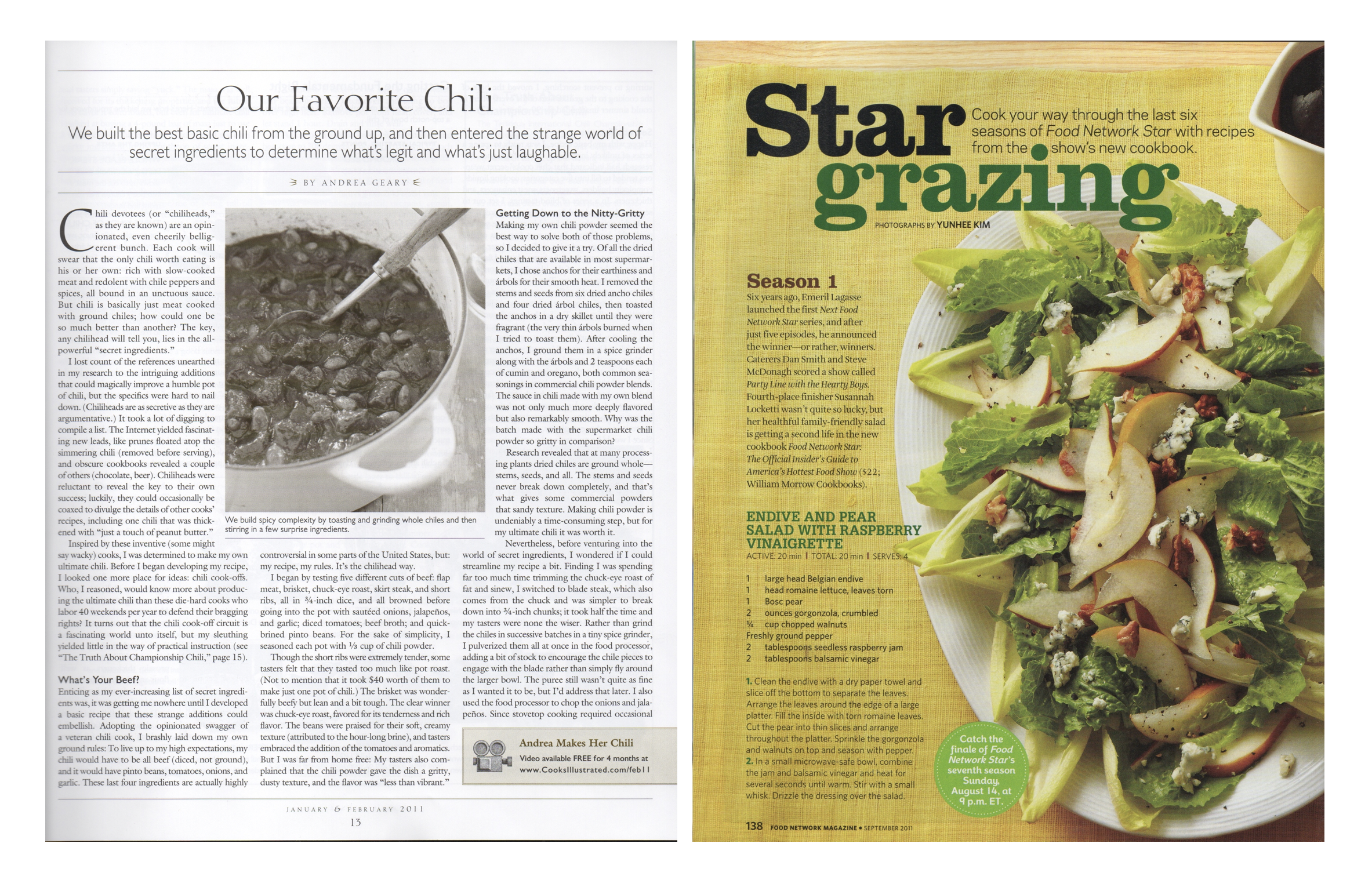
A presentation slide comparing a typical page layout in Cook's Illustrated to one in Food Network Magazine.
I concluded that, on the one hand, Cook's Illustrated conveys trustworthiness in the form of explicitly putting its readers’ needs and wants first and creating a personal, personable affect, especially in the guise of its founder and spokesperson, Christopher Kimball. On the other, it conveys expertise by repeatedly highlighting its scientific method-esque approach to recipe development, its eschewing of any advertising and therefore bias, and its absolute consistency in print layout.
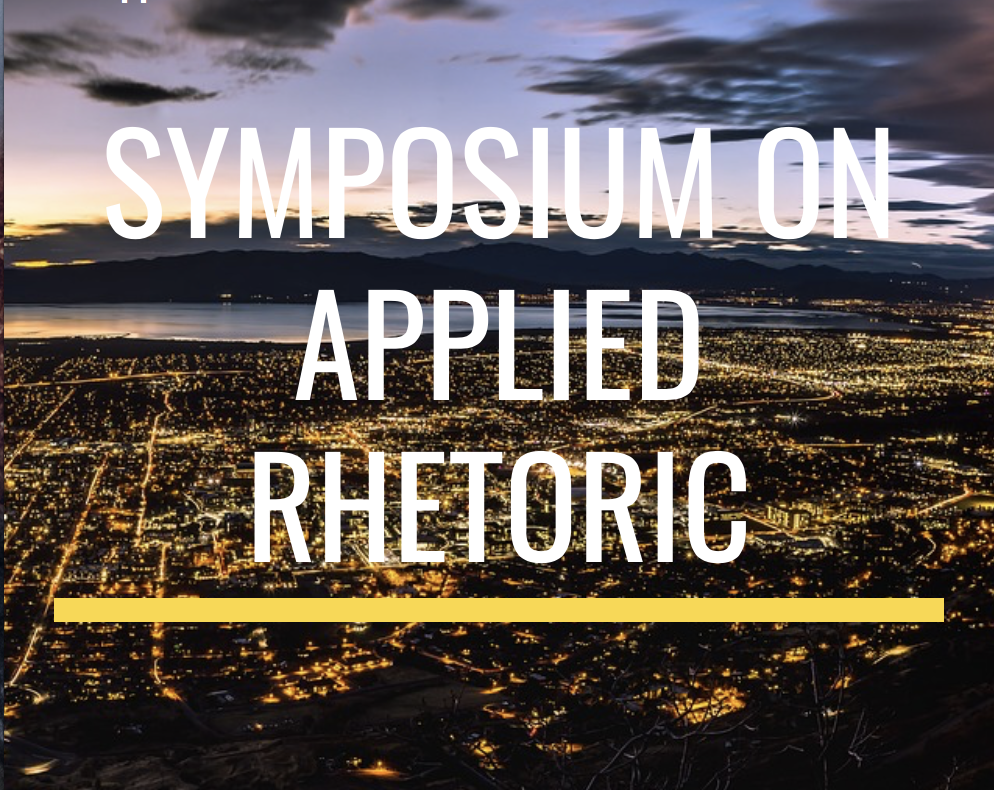
Grover, S. D. (2018, June). Ethos in Cook’s Illustrated. Presentation given at the Symposium on Applied Rhetoric, Provo, UT.
Present Efforts
Current Event Coverage Report
My most recent project has been the development of a new synthesis unit for my junior-level writing course. The old unit centered around a literature review, which I found wasn't helping my students complete the learning objectives well. At the same time, I encountered research that suggests that students today cannot effectively distinguish between real and fake news and that confidence in America’s news media is low while partisanship is high.
I sought to address these issues in my revised synthesis assignment and its associated instruction and activities, and the result is what I call the Current Event Coverage Report. The assignment begins with each student choosing a recent event of national interest that has received wide coverage in the public discourse. Then students gather every publication they can find about their event; evaluate the merits, credentials, biases, and failings of each; and write a report about the event and the way it was covered in the news media. The final deliverable has two parts, an annotated bibliography and a report.
I presented on this unit at the 2018 CCCC Annual Convention in Kansas City.

Grover, S. D. (2018, March). Current event coverage report: A synthesis assignment. Presentation given at the Conference on College Composition and Communication Annual Convention, Kansas City, MO.
Additionally, one of the texts I wrote to supplement the readings I collected, called "The Journalism Continuum," has been adopted by BYU–Idaho as part of its textbook for Foundations of English 301, and I formally presented this assignment sequence to my department in June 2018, leading several colleagues to adopt it in their classrooms. The Utah State University writing program has also adapted this assignment for use in their first-year composition program.
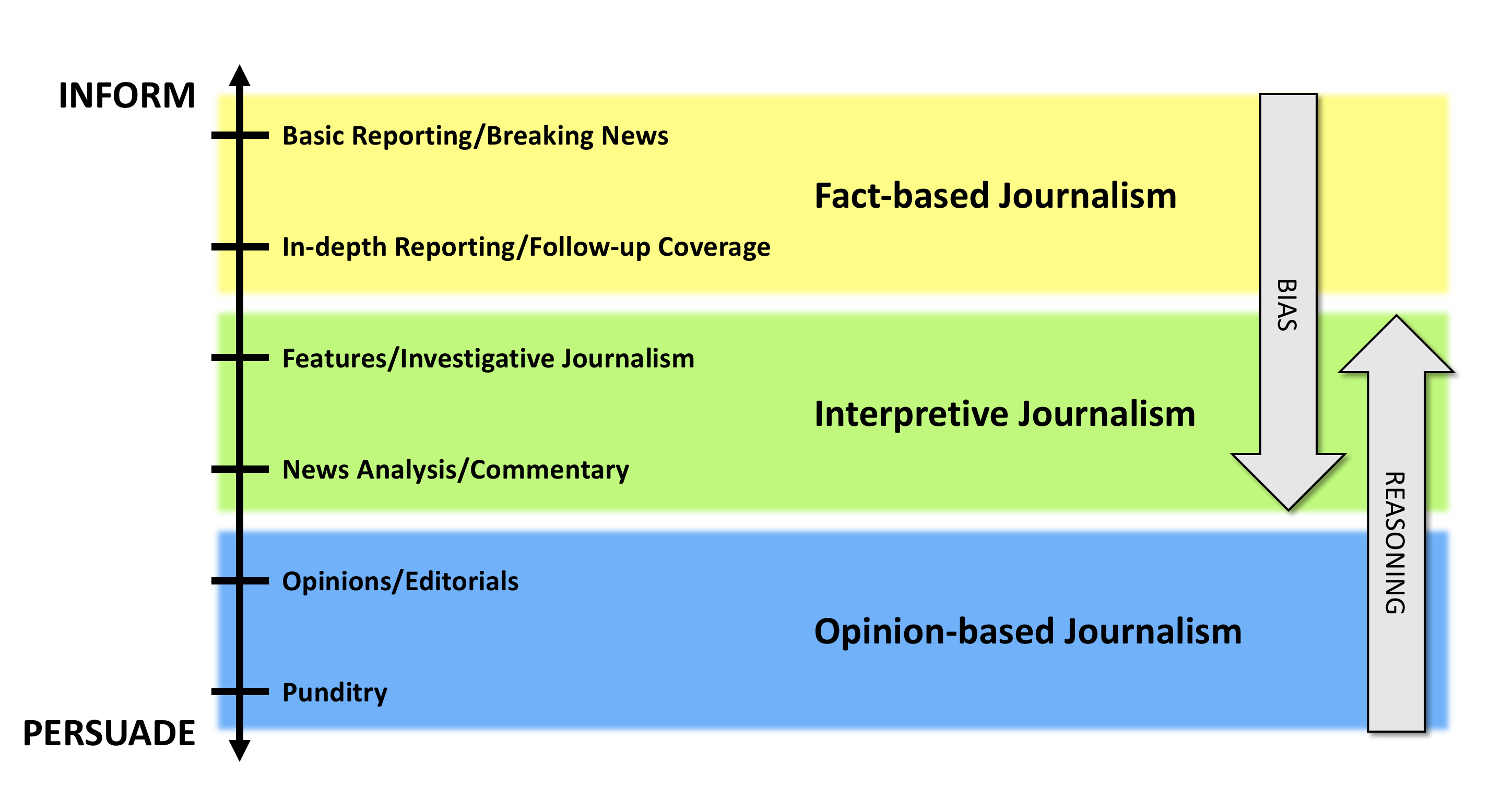
Graphic of the journalism continuum, part of a reading I developed for my students. Click to see the entire reading.
I am currently developing additional materials — such as a reading on identifying media bias — and studying the unit from a scholarly perspective. I am collecting data in the form of student work and feedback, which will form the basis of an analysis that I can then use to frame my work for publication.
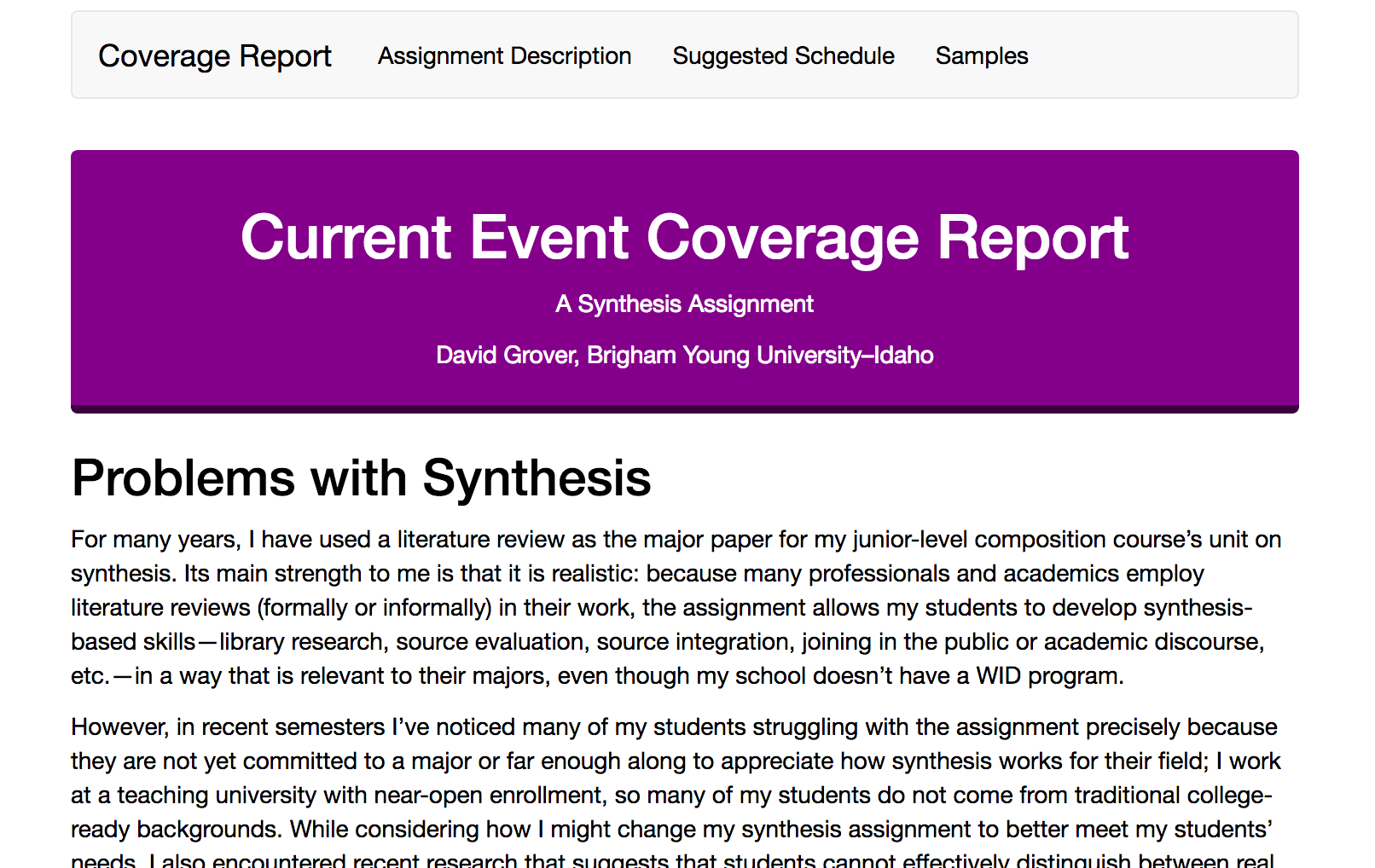
For my CCCC presentation, I set up a simple website to share the assignment, readings, activities, a suggested schedule, and sample student work. Click to access this resource.
Preparing Graduate Teaching Assistants to Teach Writing Online
A Nationwide Assessment of Research and Practice
My dissertation — done through Texas Tech University and overseen by Kelli Cargile Cook, the past president of both ATTW and CPTSC — bridged the fields of teacher preparation and online writing instruction. It was modeled on Catherine Latterell's hugely influential 1996 dissertation and the widely anthologized and cited article she excerpted from it, entitled "Training the Workforce: An Overview of GTA Education Curricula." It is my hope that this research can do for OWI what Latterell's did for traditional teacher preparation. Here is the abstract:
In the absence of any widespread assessment to determine how much and what kind of online writing instruction (OWI)-focused teacher preparation is being offered to graduate teaching assistants, this dissertation presents the results of an empirical, mixed-methods study that maps the field’s current research and practice and then interrogates that map to identify paths for better meeting the needs of the field’s stakeholders. The study’s first phase employs a content analysis of the professional literature and finds that research into OWI preparation is minimal and dominated by too few voices, while the second phase reports on the results of an online questionnaire focused on local OWI preparation program practice and finds that OWI preparation is only sparsely practiced nationwide. The final phase synthesizes these results and provides WPAs a heuristic for the design and evaluation of OWI preparation programs.
My dissertation committee also included Rebecca Rickly and Susan Lang, two scholars known for their mastery of research methods. They worked closely with me as I created and then refined my research design to be robust yet achievable.

A graphic depicting the mixed methods sequential exploratory design I employed for my research.
I presented on the three phases of my research at the three premiere conferences for my areas of scholarship: the CCCC Annual Convention, the CWPA Conference, and the GSOLE online conference.

Grover, S. D. (2016, April). How and how much? The need for online writing instruction preparation for graduate teaching assistants. Paper presented at the Conference on College Composition and Communication Annual Convention, Houston, TX.

Grover, S. D. (2017, July). Preparing graduate students for excellence in the online classroom: A heuristic for augmenting existing teacher preparation. Paper presented at the Council of Writing Program Administrators Conference, Knoxville, TN.

Grover, S. D. (2018, January). At the crossroads: How we prepare graduate students to teach writing online. Paper presented at the Global Society of Online Literacy Educators Online Conference, online.
Currently, I am adapting three chapters of the dissertation for publication as scholarly articles. One is already under review at ROLE, and I hope to have the other two under review by the end of Fall 2018.
Future Directions
As a teacher researcher, I anticipate my future research agenda will largely be determined by the needs of the department where I settle, potentially focusing on program assessment, teacher preparation, or some other aspect of writing program administration or my own classroom practice. With a firm background in both quantitative and qualitative methods, I am prepared to identify research questions and then choose appropriate methods to gather and analyze data. My hope is that, in doing so, I can not only benefit my department and its students but also the larger writing studies community as I publish my findings.
In the meantime I am in the early stages of planning follow-up to my dissertation, this time focusing not on the national picture of OWI preparation but on the voices of those participating in those preparation efforts, namely the graduate students. My ultimate goal for this avenue of research is to edit an anthology centered on OWI preparation for GTAs, something akin to Pytlik and Liggett's Preparing College Teachers of Writing: Histories, Theories, Programs, Practices.
I am also reviewing the literature on mentoring and advising undergraduates for a future project that will look at how adjunct and contingent faculty engage in mentoring and how it affects their work.
